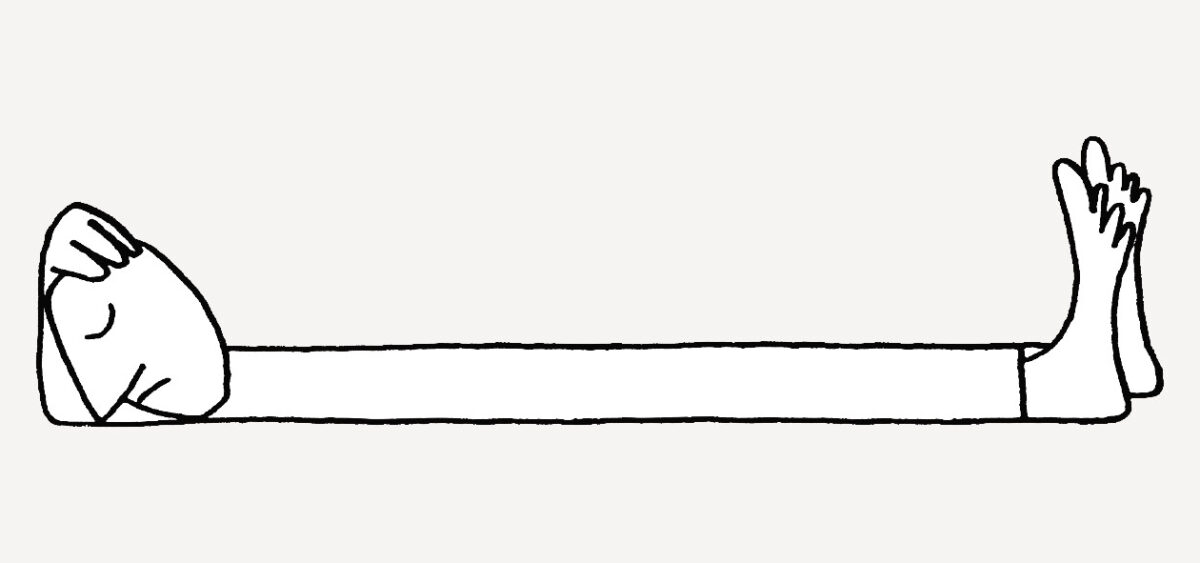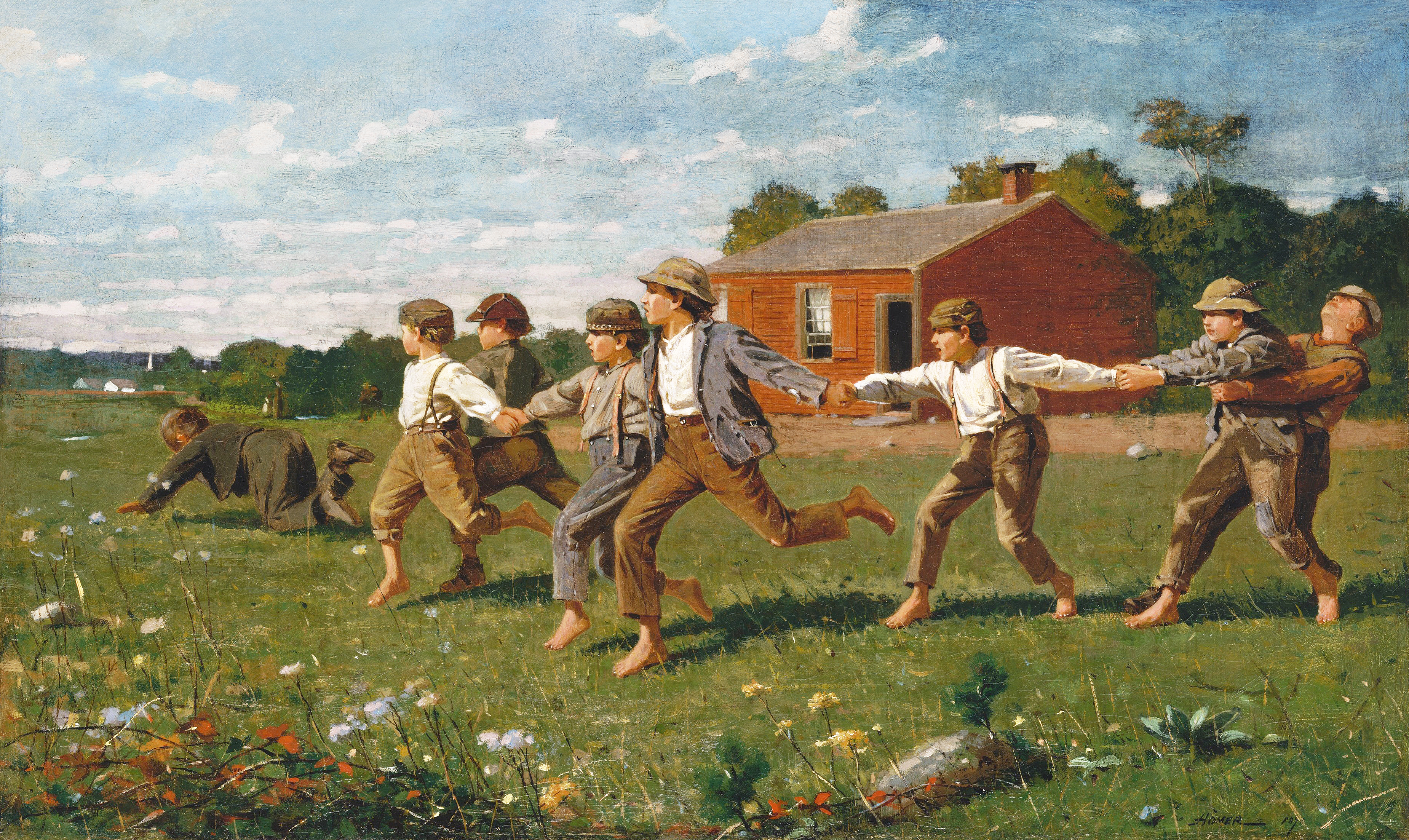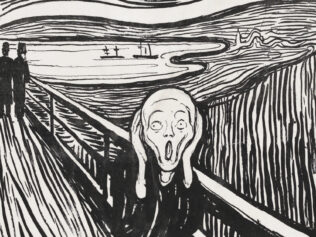
What would happen if people hibernated in winter? Adam Węgłowski examines the habits of the species Homo snoriens.
At the end of December, as every year, the Dream Time begins, as millions of Poles slip into their three-month lethargy. In the days of Bolesław the Sleepy, they would hole up in caves, dugouts, huts and towers. Today they sleep in luxury bunkers, villas and hotels. Dreamboat is lucky to have a computerized studio flat with a winter hibernation function. The software guarantees that while she sleeps, she’ll learn foreign languages and subconsciously exercise. She can afford it, because she works as a commercial rep for a company that imports pillows from Kim Il Sung’s company (sold under the punny name Kip Il Sung).
Today Dreamboat is a businesswoman, but she studied sociology for three years and is fascinated by the changes taking place around her, and even more so by the still intact rituals surrounding hibernation. Just as they used to, Poles still eat heartily to build up reserves during the Christmas holidays. Then they wake up for Easter, to sit down at the table again and eat their fill after their winter sleep. Of course, this doesn’t apply only to Poland; it’s similar in other countries, though the holidays are celebrated differently there, different dishes are eaten, other pyjamas are worn, and the favourite bedtime story is A Midsummer Night’s Nap, not Sleepless Beauty.
Still, the typical Polish malcontent notices that depending on the country, healthcare for the sleepers also varies. In the land on the Vistula, it’s definitely insufficient. First-aid kits for those who awaken early are modest, and there’s a shortage. The Sleeping Security Service’s computerized sleep monitoring service is based on faulty software. “Because of the SSS, sleep is still a terror!” the tabloids scream. They calculate that in more developed countries, even if somebody suffers from chronic insomnia, they can survive on the reserves in the kits. And the Sleep Guardians will provide them with holistic assistance, not just forced Morpheusization.
“Those terrible Sleep Guardians!” Dreamboat says with a shudder. She doesn’t trust people who live in voluntary sleeplessness. Recently the media have been hitting them hard. “The Polish units of the Sleep Guardians need immediate reform!” newspapers wrote. “The recent scandals show that it’s hard to trust them. How many more cases of not just home robberies but molestation of the sleeping have to happen for the Guardian units to be reformed? Shouldn’t the testing of candidates for sleeping policemen uncover potential criminals? We’ve been silent for generations, but today the situation is ripe for change!”
Forced Morpheusization also raises doubts. Ages ago, those shaken out of their slumber were given herbal preparations, or simply bludgeoned. Today we use modern pharmaceuticals. In the more luxurious facilities there are even Reader Guardians, who put the awakened guest to sleep by reciting literary classics. Research indicates that in Poland, the traditional sedative is Sienkiewicz’s Trilogy, and it’s usually enough to get halfway through With Fire and Sword. If the guest doesn’t fall asleep before the start of Fire in the Steppe, the crooners inform their syringe-carrying colleagues. It’s known that when Wołodyjowski and Ketling get blown up it stimulates even those who are already nodding off, so without pharmacological methods it’s not gonna happen. It’s no surprise that progressive circles are demanding that the canon be made less dynamic and bloody. That would make it easier to fall asleep, and stop causing nightmares.
It’s just that, simultaneously, there is the temptation to reach for books with, erm, erotic content. The Guardians say this isn’t allowed, because it could provoke people to dreams about carnal hijinks. After all, “Who dreams, sins,” as the Father Guardians from past eras used to say.
“The Guardians have too much power,” Dreamboat says, outraged. “In other countries they abandoned those moralizing bedtime lectures long ago. Not to mention the post-hibernation confession. Slumbering Christ, who’s supposed to remember what they dreamed three months ago?” The Guardians would certainly respond that they’re only defending tradition. And that people should be grateful. After all, it’s thanks to them that civilization is developing. Otherwise, everybody – from your closest neighbours to whole countries – would be killing each other during the sleep. Just like Cain murdered Abel when he went to sleep early.
And Poles really have nothing to complain about, the Guardians argue. After all, there are countries where you wouldn’t go to sleep for all the money in the world. Faraway lands where there are no caves, and the woods stretch on forever. Where people sleep in cocoons in the branches of trees or in sealed up hollow trees, and wild animals attack and devour the sleepers, insufficiently guarded by shamans equipped with rusty old muskets. Or where lunatics prowl, killers driven mad by an exotic herb, and for protection against them there still exist equally lunatic knightly orders.
That’s right: it’s hard for people spending the winter in bunkers decorated with carved wood and equipped with electricity to even imagine things like this. Poles have problems of a different scale. It’s not so much about the conflicts around the Sleep Guardians or the SSS. Poor diets mean an increasing percentage of elderly people have hearts that can’t survive the winter sleep. The number of couples who don’t want to leave their love nests after the winter is exploding. There are also more and more frequent cases of people who wake up with amnesia. They don’t recognize the world around them. I mean, they’re convinced that Homo snoriens doesn’t actually hibernate! “It’s some kind of nightmare!” they say. “Or a dream in a dream in a dream!” The Guardians try to get them back in line with exorcisms, but it doesn’t always help. The doctors also seem to be helpless.
But a few philosophers perorate that, in fact, everything around us is a dream. Who in Poland would listen to them? As the old Polish saying goes: “Life’s a bed!”
Translated from the Polish by Nathaniel Espino










